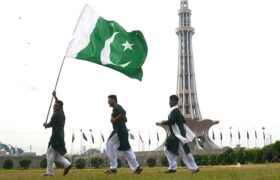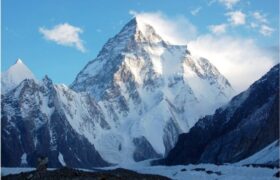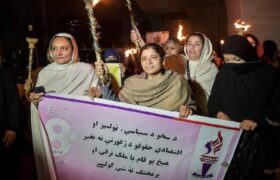SEHRISH FATIMA
Violence has long tormented human culture, and when it invades the political domain, the results can be annihilating. A violent political culture is a curse that undermines the very foundations of democracy and peaceful coexistence. It breeds fear, suppresses dissent, and perpetuates a cycle of aggression.
A violent political culture flourishes with the seeds of division and struggle. Politicians and their allies and supporters often resort to aggressive rhetoric, disdainful discourse, and surprisingly even physical violence to further their interests. Instead of promoting dialogue and understanding, they exacerbate societal fault lines, creating an “us versus them” mentality. Such an environment disintegrates trust in institutions and deepens societal divisions, making it challenging to settle on something worth agreeing on and seek aggregate advancement.
The long record of political terror and violence in Pakistan has had an esoteric and significant impact on the country’s political terrain. The viciousness has been energized by a range of elements, including ethnic and partisan strains, political polarization, and the impact of radical and fanatic groups.
The underlying foundations and roots of Pakistan’s violent and brutal political culture can be outlined back to the country’s early history. In 1947, a homeland for Muslims in the Indian subcontinent, Pakistan was created. Since then, Pakistan has been tormented by ethnic and partisan strains. These tensions have been exacerbated by a range of factors, including economic disparity, political debasement, and the impact of radical and extremist groups.
Violence in politics frequently prompts the concealment of difference and the terrorizing of people who hold varying suppositions. Threats, physical attacks, and provocation become instruments utilized to smother resistance, effectively silencing the voices of marginalized groups and dissidents. In such an environment, individuals are reluctant to communicate their perspectives unreservedly, prompting a chilling impact on equitable cooperation and the disintegration of basic privileges.
Political polarization is one of the vital drivers of political violence in Pakistan. The nation has a profoundly divided political scene, with various gatherings and groups seeking power. This has prompted serious political competitions and a conqueror brings home all the glory mindset, which has powered vicious showdowns between political gatherings and groups.
Another element contributing to political violence brutality in Pakistan is the impact of fanatic and extremist groups and gatherings. Pakistan has for quite some time been a favorable place for radical gatherings, many of which have connections to the Taliban and other fear-mongering associations. These gatherings have conducted various assaults on legislators, writers, and other individuals of note, and have looked to subvert the country’s vote-based organizations.
A violent political culture poses a direct threat to the principles of democracy and the rule of law. When politicians and their supporters resort to violence, it undermines the democratic process, replacing rational discourse and peaceful elections with chaos and disorder. The rule of law is disregarded as mob justice takes precedence, further eroding the foundations of a just and equitable society.
The impact of violent political culture extends beyond the political realm. It has extreme economic consequences as well. Investors are reluctant to focus on shaky and uneven conditions, and organizations endure subsequently. Disturbances in law and order and public requests thwart monetary development, smother advancement, and obstruct foreign investment. Ultimately, the burden falls on the citizens, as joblessness and destitution rates rise, worsening social imbalance and fueling complaints.
Living in a society plagued by violent political culture takes a toll on the collective psyche. Dread, fear, anxiety, and feeling of defenselessness become unavoidable. People become frustrated and lose confidence in their leaders and institutions. The fabric of social cohesion begins to unravel, as mistrust and suspicion poison interpersonal relationships. The resulting social unrest threatens to tear communities apart, leaving lasting scars that may take generations to heal.
A violent political culture not only damages society internally but also affects a nation’s standing on the international stage. Nations that embrace violence as a political tool often find themselves isolated, facing strained diplomatic relations and diminishing influence. Impeding progress on critical global challenges such as climate change, human rights, and peacekeeping efforts.
A violent political culture is a revile that happens to social orders, abandoning a path of obliteration and obstructing progress on various fronts. It propagates division, suppresses dissent, dissolves democracy, damages the economy, and inflicts profound mental injuries. It is compulsory that we collectively refuse violence in politics and work towards a culture that values peace, patience, and respectful dialogue. Only through a commitment to non-violence we could at any point fabricate a public that cultivates solidarity, flourishing, and veritable advancement for all.
Notwithstanding these difficulties and challenges, to address Pakistan’s violent political culture, there are steps that can be taken. One key step is to advance more noteworthy political and social attachments and cohesion.
Another significant step is to fortify the country’s vote-based establishments. This can be accomplished through measures like the foundation of an autonomous legal executive, the reinforcing of the appointive cycle, and the advancement of the press and other common freedoms.
At long last, it is vital to address the main drivers of radicalism and psychological warfare in Pakistan. This can be accomplished through a scope of measures, including the advancement of training and economic turn of events, the fortification of policing security powers, and the advancement of moderately strict voices.
All in all, Pakistan’s rough political culture is a revile that significantly affects the nation’s majority-rule government and its kin. While there are no simple answers to this perplexing issue, fundamental advances are being made to address the main drivers of political viciousness in Pakistan and to advance more prominent political and social attachment. At that time, Pakistan could at any point move towards an additional serene and prosperous future.




